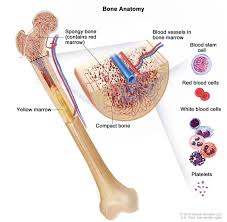Acupuncture has been a staple of traditional Chinese medicine for thousands of years. Many people are now turning to this ancient practice as a natural way to support their healing processes. So, how does acupuncture work, and what benefits can you expect? Let’s dive into the world of Chinese acupuncture and explore its potential for promoting natural healing.
Understanding Acupuncture
At its core, acupuncture involves the insertion of thin needles into specific points on the body. These points are believed to correspond to different organs and systems. The practice is based on the concept of Qi (pronounced “chee”), which is often translated as “life force.” According to traditional Chinese medicine, Qi flows through pathways in the body called meridians. When this flow is disrupted, it can lead to illness and discomfort. Acupuncture aims to restore the balance of Qi and promote overall well-being.
The Science Behind Acupuncture
While acupuncture has been practiced for centuries, many people often wonder about its scientific validity. Research suggests that acupuncture may stimulate the release of endorphins, the body’s natural painkillers, which can help alleviate pain and improve mood. Moreover, it might also enhance blood circulation and promote cellular repair. The stimulating effect on the nervous system could explain why many patients report reduced stress and anxiety after sessions.
Pain Management
One of the most common reasons people seek acupuncture is for pain management. Whether it’s chronic back pain, migraines, or arthritis, acupuncture has shown promising results. By targeting specific acupuncture points, practitioners can help reduce inflammation and improve blood flow to affected areas. Many patients experience significant relief from pain, often without the need for medications. Isn’t it amazing to think that a few tiny needles could lead to such profound relief?
Stress Reduction and Mental Well-being
In our fast-paced world, stress seems almost inevitable. However, acupuncture can serve as a powerful ally in managing stress. When the body is under stress, the Qi can become stagnant, leading to various physical and mental health issues. Acupuncture helps to release this tension, promoting relaxation and a sense of calm. Many individuals report feeling a sense of tranquility during and after their sessions, allowing them to face daily challenges with a more positive outlook. If you’ve been feeling overwhelmed, acupuncture might just be the soothing remedy you need.
Supporting Digestive Health
Did you know that acupuncture can also help with digestive issues? Conditions like irritable bowel syndrome (IBS), constipation, and bloating can be frustrating and uncomfortable. Acupuncture points related to the digestive system can help improve gut health by promoting better digestion and alleviating discomfort. By encouraging the body to restore balance, acupuncture can also support the overall functioning of the digestive tract. So, if you’re struggling with gut-related issues, it might be worth giving acupuncture a try.
Enhancing Immune Function
Your immune system plays a crucial role in your overall health. Acupuncture may help to enhance immune function by promoting the production of white blood cells, which are essential for fighting off infections. This immune boost can be particularly beneficial during cold and flu season or for those with weakened immune systems. By helping your body defend itself more effectively, acupuncture can support your natural healing process.
Improving Sleep Quality
A good night’s sleep is vital for healing and overall well-being, yet many people struggle with sleep-related issues. Acupuncture can help promote better sleep by addressing the underlying causes of insomnia, such as stress and anxiety. By inserting needles at specific points, practitioners can help calm the mind and prepare the body for restful sleep. Imagine waking up refreshed and ready to tackle the day ahead — that’s what acupuncture might help you achieve.
Personalized Treatment Plans
One of the great aspects of acupuncture is that it can be tailored to each individual’s needs. Every person is unique, and a skilled acupuncturist will assess your specific condition and create a treatment plan just for you. This personalized approach ensures that you receive the most effective care possible. During your sessions, your practitioner will ask about your health history, lifestyle, and any concerns you may have, allowing them to fine-tune your treatment for optimal results.
Safety and Accessibility
Acupuncture is generally considered a safe practice when performed by a trained professional. The needles used are sterile, single-use, and designed for minimal discomfort. Many people find acupuncture to be a relaxing experience, often feeling a sense of warmth or tingling at the treatment site. Additionally, with the growing popularity of acupuncture, it’s becoming more accessible. Many wellness centers and clinics now offer acupuncture as part of their services, making it easier for you to explore this natural healing method.
Final Thoughts
Acupuncture offers a holistic approach to health and wellness, providing natural support for various conditions. By tapping into the body’s innate healing abilities, acupuncture can promote balance, reduce pain, and enhance overall well-being. Whether you’re seeking relief from a specific issue or simply looking to improve your health, this ancient practice may be just what you need. So why not give it a try and see how it can support your journey to better health?




